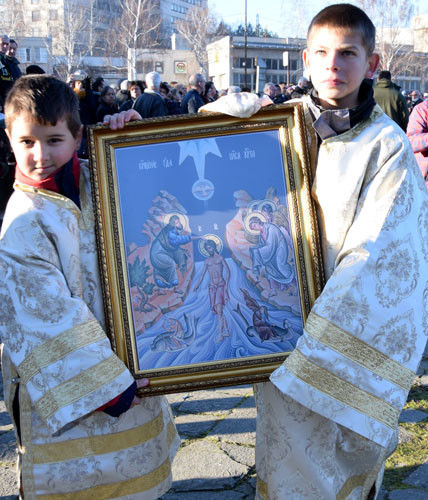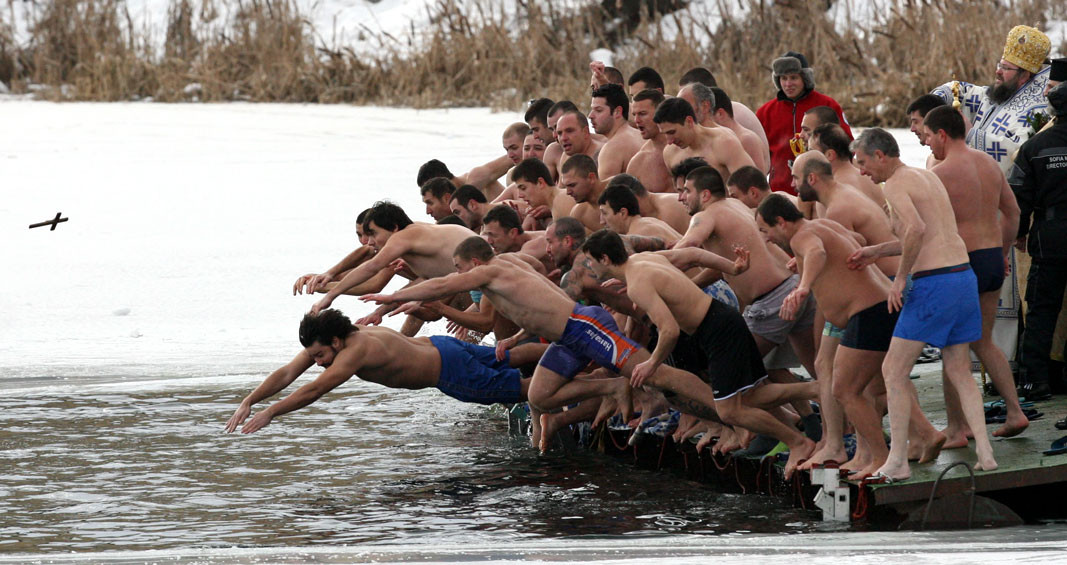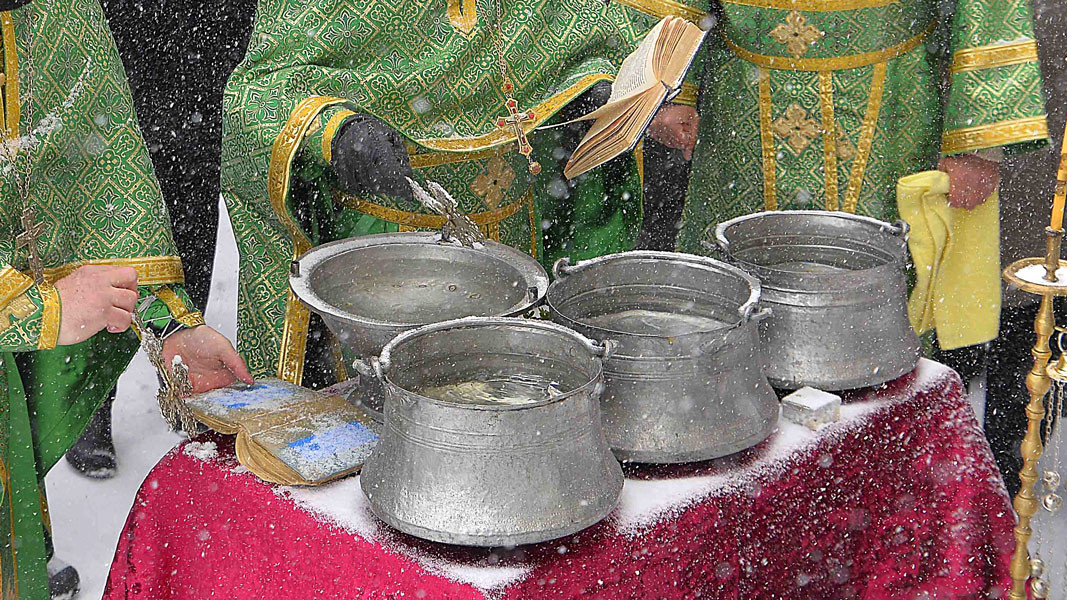Today, January 6, the Bulgarian Orthodox Church marks one of its biggest holidays - Epiphany. According to Christian teachings, on the day of the Baptism of Christ by John the Baptist, all three Persons of the Holy Trinity manifested. When the Savior emerged from the water, the sky opened and the Holy Spirit descended in the form of a white dove, and a voice from heaven said: "This is my beloved Son, in whom I am well pleased." Then, upon seeing the manifestation of the Trinity, thousands were baptized in the holy river. That is why the holiday is called Epiphany.
 On the eve of Epiphany, as well as during the feast the so called Great Sanctification or Jordanian Sanctification takes place. Therefore people believe that Epiphany water has the most powerful, purifying power. Festive liturgies take place in churches. Traditionally, after that the priest leads believers to a nearby river or lake and throws the cross into the water. Men jump into the icy waters to take it out. It is believed that the one who gets the cross first will be healthy and happy throughout the year. It is believed that if weather on this day had clear skies and the cross froze in the water, the year would be healthy and fertile. During the Great Sanctification, all the waters of the earth are symbolically sanctified, so it is believed that water from both springs and drinking fountains is blessed. The Orthodox Church uses Epiphany water to expel spiritual and bodily impurity, while believers drink it to strengthen the spirit and keep some of it in their homes throughout the year.
On the eve of Epiphany, as well as during the feast the so called Great Sanctification or Jordanian Sanctification takes place. Therefore people believe that Epiphany water has the most powerful, purifying power. Festive liturgies take place in churches. Traditionally, after that the priest leads believers to a nearby river or lake and throws the cross into the water. Men jump into the icy waters to take it out. It is believed that the one who gets the cross first will be healthy and happy throughout the year. It is believed that if weather on this day had clear skies and the cross froze in the water, the year would be healthy and fertile. During the Great Sanctification, all the waters of the earth are symbolically sanctified, so it is believed that water from both springs and drinking fountains is blessed. The Orthodox Church uses Epiphany water to expel spiritual and bodily impurity, while believers drink it to strengthen the spirit and keep some of it in their homes throughout the year.
 If one had a certain amount of water from the previous year, it is used to knead three ritual loaves of bread - one for the household, the second for guests, and the third for passersby, as bread is left in front of the house together with a glass of wine.
If one had a certain amount of water from the previous year, it is used to knead three ritual loaves of bread - one for the household, the second for guests, and the third for passersby, as bread is left in front of the house together with a glass of wine.
According to folk traditions, the feast marks the end of the so-called dirty days (December 25 to January 6). The dinner on January 5th consists of Lenten dishes as nuts and raw wheat are present together with sauerkraut, stuffed peppers, beans.
 On January 6, people named Jordan, Dancho, Dana, Boyan, Bogdan, Bogdan celebrate. Traditional Bulgarian rituals include splashing water on all who have a name day on the feast.
On January 6, people named Jordan, Dancho, Dana, Boyan, Bogdan, Bogdan celebrate. Traditional Bulgarian rituals include splashing water on all who have a name day on the feast.
English: Alexander Markov
The Bulgarian Orthodox Church celebrates Christmas with solemn services. The festive services began on Christmas Eve, when the church held a solemn vigil. Hundreds of laypeople gathered at the St. Alexander Nevsky Cathedral in Sofia, where..
This year, the holiday of Christmas for the Bulgarian Eastern Orthodox Diocese in the United States, Canada and Australia is especially exciting! Metropolitan Joseph’s long-standing prayers to have his own vicar bishop have come true. His previous..
His Holiness Daniil, Patriarch of Bulgaria and Metropolitan of Sofia, addressed the Orthodox Christians on the eve of the bright Nativity of Christ (Christmas Eve). "Silent in prayer, gathered around the warm hearth, we await the fulfilment of what was..
Quiet among the Lyulin Mountain slopes, the Klisura Monastery of St. Petka is marked by mystery and radiates spirituality. It is located only 7 km from..

+359 2 9336 661
